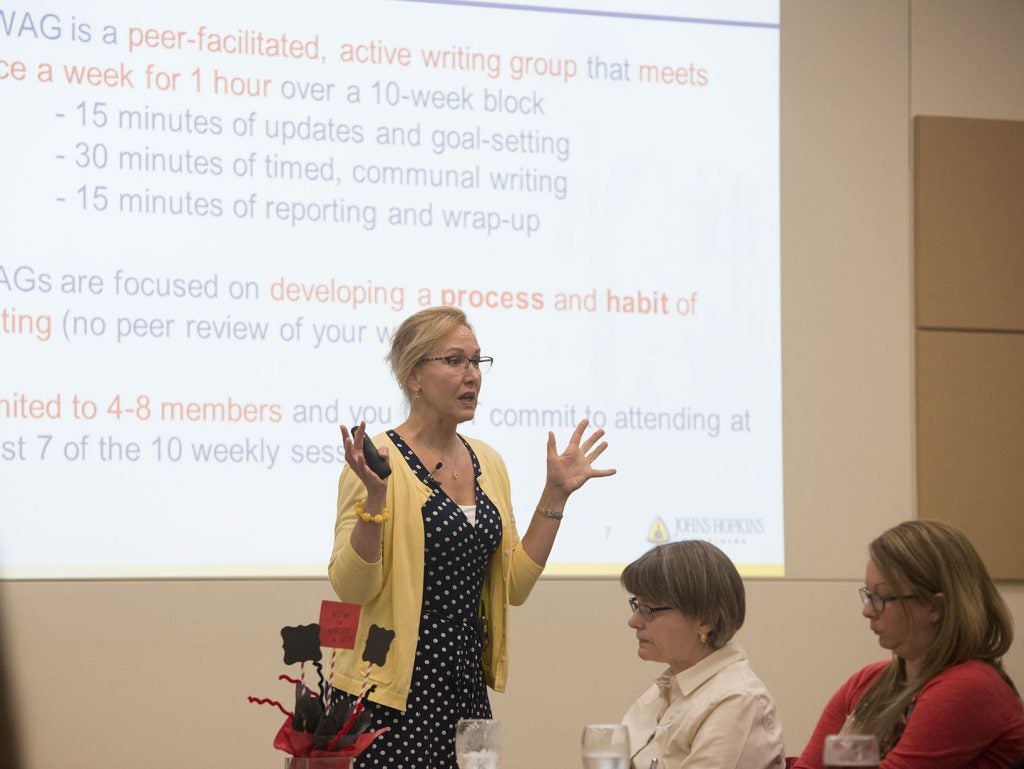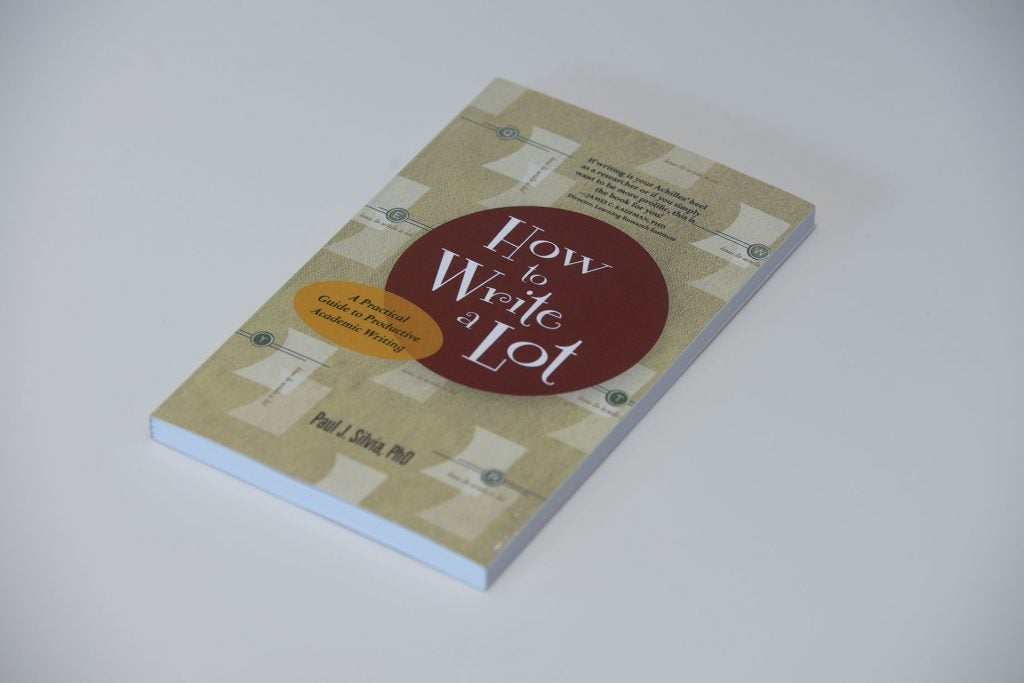Annual lecture series focuses on academic writing
A recent lecture series hosted by East Carolina University’s College of Nursing aimed to help nursing faculty members increase their academic writing.
The 9th annual Siegfried Lowin Visiting Scholar Lecture Series on April 6 featured presentations by Dr. Kim Skarupski, associate dean for faculty development at Johns Hopkins University School of Medicine, and Dr. Paul Silvia, a Lucy Spinks Keker Excellence Professor in the University of North Carolina-Greensboro’s Department of Psychology and the author of How to Write a Lot: A Practical Guide to Productive Academic Writing.

Dr. Kim Skarupski discusses how faculty members can dedicate more time to writing during the Siegfried Lowin Visiting Scholar Lecture Series on April 6 at Eastern Area Health Education Center. (Photos by Conley Evans)
In her presentation, Skarupski discussed how faculty members can learn to prioritize writing every day and make it a habit amidst a full schedule of other duties. She recommended writing accountability groups, or WAGs, where participants convene regularly to work on writing and to encourage and hold each other accountable for reaching their goals.
“This is not an option if you’re an academic,” Skarupski said of writing. “You have to do the scholarship portion… The mantra should be, ‘Writing is my job. I do my job every day.’”
She said it’s important for busy faculty members to carve out a small amount of time for writing each day and to remain dedicated to that specific amount of time — no more and no less.
“The whole concept of a WAG is to get people to write more frequently, more regularly, because you’re trying to establish a habit, but for shorter durations,” she said.
Skarupski also suggested expanding the definition of writing to include actions that aren’t necessarily putting words on paper, but that are necessary elements for the writing process. This could include collecting data, copying tables and sending emails requesting information.

Copies of How to Write a Lot: A Practical Guide to Productive Academic Writing, written by visiting scholar Dr. Paul Silvia, were distributed to participants of the Siegfried Lowin Visiting Scholar Lecture Series.
“Once you expand your definition of writing, you’re taking a huge weight off your shoulders,” she said. “Now it’s not just words, words, words. Now it’s all those components,” Skarupski said. “If you expand that definition of writing, now when you have a 10-minute block open because a meeting ended early or a student cancelled on you…smart objectives are being met.”
Silvia, who studies the psychology of creativity and what makes things interesting, also recommended consistency in writing over scheduling large writing “binges.”
“Because time is so self-renewing and self-replenishing until it isn’t, we really take it for granted,” he said. “So we don’t use it as well as we could.”
Silvia used the example of faculty who lose two weeks of potential writing time because they rationalize the decision not to write the week before spring break – because they are “building up to it” – and not to write the week after spring break – because they are “burnt out.”
“So for whole swaths of the semester, people just totally abandon it,” he said. “Today, there might not be four hours, but there’s an hour, and that might be the only hour we have this week. The slow and steady approach is very powerful.”
The Siegfried Lowin Visiting Scholar Lecture Series began in 2007 through the generosity of ECU faculty members and spouses Dr. Mary Ann Rose, professor of nursing, and Dr. Walter Pories, professor of surgery and biochemistry. Rose and Pories named the series after Pories’ uncle, a World War II veteran, to honor the nurses who cared for him throughout an extended illness.
-by Natalie Sayewich, University Communication